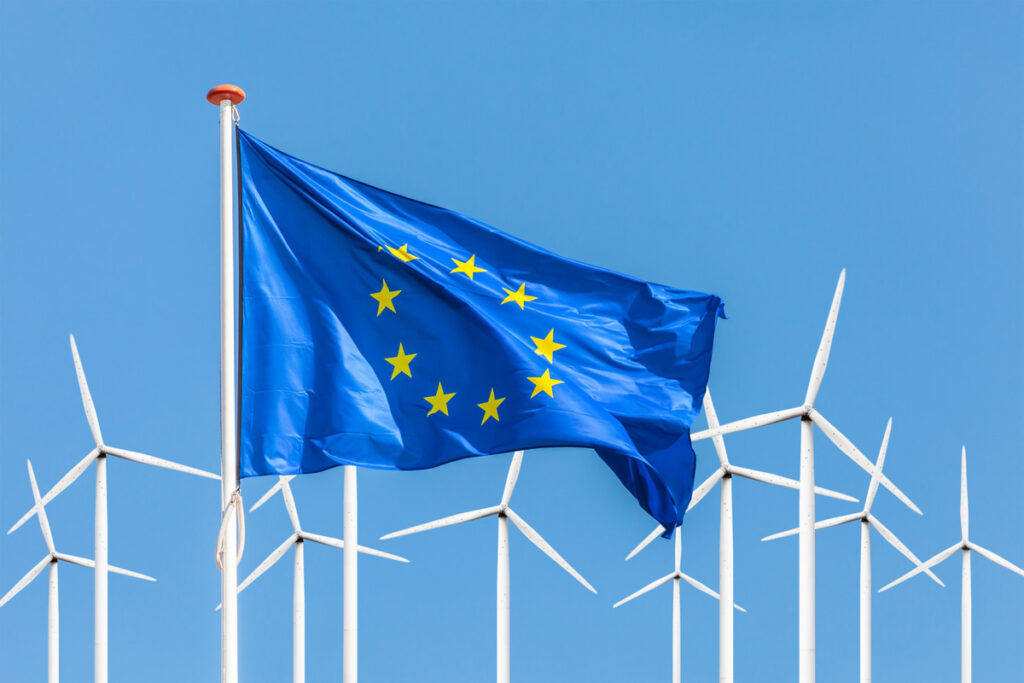
In terms of developing clean and sustainable technologies, the European Union has nothing to envy of the rest of the world, but difficulties remain. This is what emerges from the latest joint study by the European Investment Bank (EIB) and the European Patent Office (EPO), which concludes: “The EU single market is a key catalyst for deployment of clean and sustainable technologies. While the European Union (EU), through its Green Deal, aims to reduce greenhouse gas emissions by at least 55% by 2030, achieving this objective depends on the rapid adoption of innovations in clean technologies.
“Europe is at the forefront of clean technology innovation and the European Union's fully functioning single market acts as a catalyst for their deployment,” emphasizes EIB President Nadia Calviño. On a global scale, more than 22% of clean and sustainable technologies, also called cleantech in English, which are developed are precisely on the Old Continent. Cleantech are industrial techniques and services that use natural resources, energy, water and raw materials with a view to significantly improving efficiency and productivity.
So-called clean and sustainable technologies represent more than 12% of inventions in the world, with 750,000 international patent families (IPF) filed in this area. “Low-carbon energy technologies rank first, followed by numerous patent filings in clean mobility, plastics alternatives, as well as climate change adaptation technologies and clean manufacturing,” details the report.
Who develops them?
The companies behind these developments, and which provide added value on a technological level, are for the most part small structures. “More than 70% of innovative companies patenting clean and sustainable technologies in the EU have a workforce of fewer than 5,000 people, and almost a third of them prioritize their national market, compared to two thirds who consider the EU as the main market of the future for expanding their commercial efforts. At the EU level, the main contributors of the technological inventions in question are Germany and France. The report also specifies that “European clean technology innovators remain primarily focused on European markets for growth.” 29% of European companies prioritize their national market, but 61% see the EU as their key market for the future.
In the EU, these companies with fewer than 5,000 employees have already commercialized around 60% of the technologies for which they filed patent applications during the period 2011-2022, and a further 28% are about to be commercialized , predicts the report, highlighting the importance of company size when it comes to marketing. The latter adopt “a more collaborative approach” so as to be able to carry out technology transfers and above all, attract investors, but they encounter more difficulties. Smaller businesses encounter more difficulties, particularly in terms of financing.
Financing gaps with American and Chinese leaders
This was also one of the objectives of this joint study: to highlight the needs of the companies in question to put their inventions on the market. And among their demands, they call in particular for “policy support in the form of coherent regulation in the EU and faster access to financing”.
The report highlights that despite “the growing market appetite for clean technologies, there is a significant funding gap between EU and US companies innovating in this area”. A gap that widens even further for smaller businesses, while only 12% of large businesses say financing is an obstacle, 43% of micro businesses and small businesses face difficulties, indicating a more acute problem within this segment. More generally, European cleantech innovators are not able to raise as much funding as their American counterparts at all stages of growth.
Beyond the question of financing which impacts the smallest companies, medium and large companies have additional demand. Respectively 43% and 55% of medium and large companies cite “consistent regulation in the EU as the main means of promoting marketing”.
In response, the EIB recalled the existence of programs such as the European Technological Champions initiative and the Scale-up initiative, two schemes which make it possible to trigger financing mechanisms, whether loans or seed capital. or even support for venture capital to support these companies. “The recent creation of the Unitary Patent opens up promising prospects in this regard. By enabling cost-effective access to uniform patent protection across 17 EU Member States, this is an important step towards meeting the need for harmonization expressed by European clean technology innovators, thereby enabling further progress in technology commercialization and intellectual property-based financing, on a truly European scale,” the report also notes.
By providing venture capital and strategic financing to innovative clean technology companies, we can drive the development and adoption of cutting-edge technologies
“The EIB Group is committed to supporting European competitiveness through investments in net-zero emissions technologies and resource efficiency. By providing venture capital and strategic financing to innovative clean technology companies, we can drive the development and adoption of cutting-edge technologies, leading to greener, more equitable growth and a sustainable future,” comments the President of the EIB.
“While it is encouraging to see EU inventors leading the way on patents in green technologies, it is essential that collaboration continues to intensify across the global intellectual property landscape. The EU's legal framework for protecting innovation was strengthened last summer when the EPO was given responsibility for managing the new unitary patent system, which provides uniform, less costly and more efficient protection. simple in 17 EU Member States,” underlines the President of the European Patent Office, Antonio Campinos.
Like its European neighbors, Luxembourg has also made the development of cleantech a real ambition. A dedicated cluster, under the leadership of Luxinnovation, has been created to promote business development and cross-sector cooperation. And companies in the sector, here in Luxembourg, are also banking more than ever on the internal market to develop. Asked to know the number of patents filed by Luxembourg, the EIB tells us that “between 2017 and 2021, Luxembourg filed 254 international patent families (IPF). This includes inventions from businesses, public research institutions and the education sector.”

